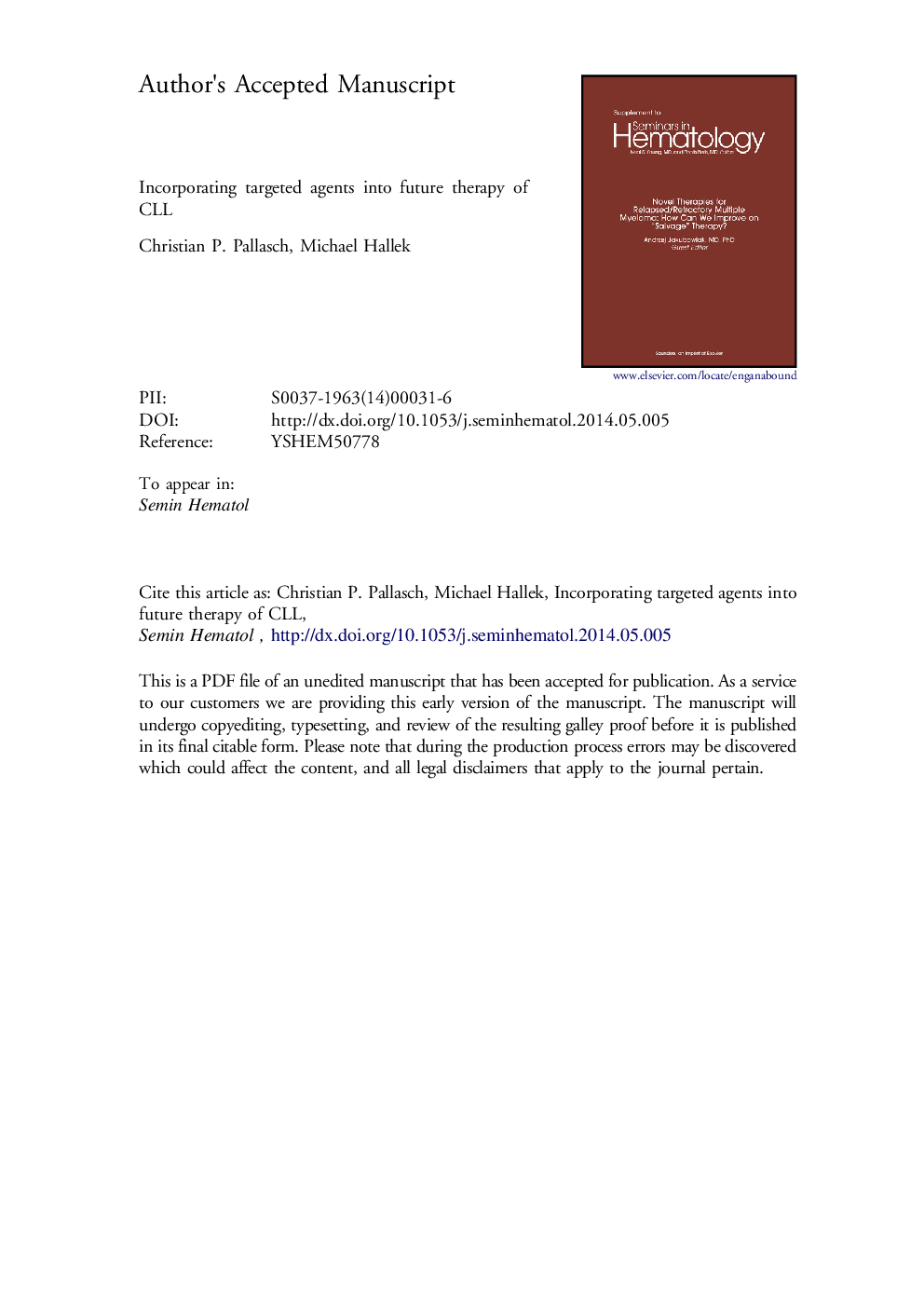| Article ID | Journal | Published Year | Pages | File Type |
|---|---|---|---|---|
| 6113753 | Seminars in Hematology | 2014 | 38 Pages |
Abstract
Treatment of chronic lymphocytic leukemia (CLL) is currently undergoing profound changes. Several monoclonal antibodies (ofatumumab and obinutuzumab), and the first agent targeting essential signaling cascades in CLL (ibrutinib) have recently been approved. Inhibiting the B-cell receptor pathway seems of particular importance in effective targeted therapies of CLL. Here, inhibition of Bruton's tyrosine kinase and phosphatidylinositol 3-kinase delta currently offer the most promising targeted approaches. The clinical course of CLL presents with an impressive heterogeneity. During recent years, the combined use of clinical, biologic, and genetic parameters has allowed characterization of at least three categories of patients1: (1) patients with a very mild onset and course; (2) patients with an intermediate prognosis; and (3) patients with an aggressive course of high-risk leukemia. With this background, it becomes increasingly challenging to select the right treatment strategy for each patient. In the present article, we summarize the current therapeutic tools and their combination partner drugs. Moreover, we offer a perspective on how to integrate the novel targeted agents for CLL therapy into sequential treatment approaches.
Related Topics
Health Sciences
Medicine and Dentistry
Hematology
Authors
Christian P. Pallasch, Michael Hallek,
